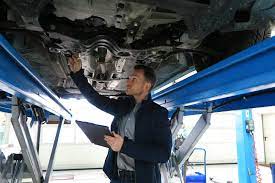
In the realm of automotive transactions, the role of a kfz gutachter neu wulmstorf appraiser stands as a crucial determinant of fair pricing, transparency, and trust. These professionals play a pivotal role in assessing the worth of vehicles, providing accurate valuations that guide buyers, sellers, insurers, and financial institutions alike. In this article, we delve into the specifics of what a vehicle appraiser does, the skills required for the job, and the significance of their role in the automotive industry.
What Does a Vehicle Appraiser Do?
A vehicle appraiser is tasked with evaluating the worth of automobiles, ranging from cars and trucks to motorcycles and recreational vehicles. Their assessments are based on a variety of factors including the vehicle’s condition, age, mileage, market demand, and any unique features or modifications. Appraisers may work for various entities such as automotive dealerships, insurance companies, financial institutions, or operate independently.
Key responsibilities of a vehicle appraiser include:
- Physical Inspection: Conducting thorough examinations of vehicles to assess their condition, identifying any defects, damages, or modifications that may affect value.
- Research and Analysis: Utilizing industry databases, market trends, and comparable sales data to determine fair market value and depreciation rates for different vehicle types.
- Documentation: Generating detailed appraisal reports documenting the vehicle’s specifications, condition assessment, and valuation rationale.
- Client Communication: Interacting with clients to explain appraisal findings, address questions or concerns, and provide guidance on pricing, negotiation, or insurance claims.
- Legal Compliance: Ensuring adherence to relevant regulations, industry standards, and ethical guidelines governing appraisal practices.
Skills and Qualifications Required
Becoming a proficient vehicle appraiser requires a combination of technical knowledge, analytical skills, and interpersonal abilities. While specific requirements may vary depending on the employer or jurisdiction, common qualifications include:
- Automotive Expertise: In-depth understanding of vehicle mechanics, construction, and performance characteristics, enabling accurate assessment of condition and value.
- Appraisal Training: Completion of formal training programs or courses focused on vehicle appraisal techniques, valuation methodologies, and industry standards.
- Attention to Detail: Ability to meticulously inspect vehicles, identify subtle defects or discrepancies, and record findings accurately.
- Analytical Skills: Proficiency in data analysis, market research, and financial calculations to determine fair market value and depreciation rates.
- Communication Skills: Effective verbal and written communication skills to convey appraisal findings clearly, negotiate with clients, and maintain professional relationships.
Significance in the Automotive Industry
The role of vehicle appraisers holds significant importance across various sectors of the automotive industry:
- Consumer Confidence: By providing impartial and accurate valuations, appraisers instill confidence in buyers and sellers, facilitating fair transactions and reducing the risk of disputes or dissatisfaction.
- Insurance Claims: In the event of accidents, thefts, or other insurance claims, appraisers play a vital role in assessing the extent of damage, determining repair costs, and ensuring that policyholders receive fair compensation.
- Financial Transactions: Financial institutions rely on vehicle appraisals to assess collateral value for auto loans, leases, or refinancing, mitigating risk and ensuring responsible lending practices.
- Market Transparency: Appraisal reports contribute to market transparency by providing reliable data on vehicle values, helping dealers, insurers, and consumers make informed decisions.
In conclusion, the work of vehicle appraisers is integral to maintaining integrity, transparency, and fairness within the automotive ecosystem. Through their expertise, diligence, and commitment to accuracy, they uphold standards of professionalism and trust, ensuring that all stakeholders receive equitable treatment in automotive transactions.
